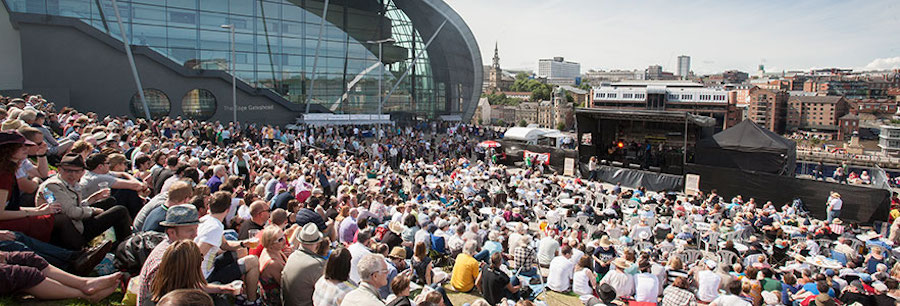
In my view, while infrastructure and services are necessary for environmental health, it is culture that provides identity, belonging and expression and support, and consequently the foundations for happier, healthier, more cohesive communities. And a thriving cultural scene encourages further private investment too. In other words, I believe that ‘culture infrastructure’ should occupy as central a role in urban planning as more conventionally accepted components like transport.
In the last ten years there has been a growing body of evidence that cultural involvement can have significant positive effect on public health and community stability. Varied and accessible local engagement in culture can create a desire to be a part of (rather than leave) a neighbourhood, building overall social resilience.
Communities gain in a variety of tangible ways, from savings in primary healthcare and lower crime and policing costs to increased private sector support and investment providing regeneration of inner city areas. With the benefits bolstered by research, culture could begin to stand alongside traditional investment recipients like new infrastructure, services, housing and others.
Earlier this year, the UK’s Department of Culture Media and Sport’s 2016 Culture White Paper firmly recognised the social value of culture. Following this, Unesco’s Global Report on Culture for Sustainable Urban Development goes further, identifying culture as intrinsic to people. In their words ’sustainable cities need integrated policy-making that builds on culture‘.
In poorer cities the need for justification becomes more critical. And international bodies like the World Cities Culture Forum are attempting to provide guidance to cities as they try to take advantage of cultural projects to improve social cohesion.
From our partners:
Prior to the 2016 Rio Olympics in Brazil, the population of the city’s poor living in favelas expressed strong concerns about how much money was being spent, and what they might have to forego as a result. Cultural policy was notionally crafted to address wider social and economic tensions, in particular through the reuse of venues and construction materials used to house the games.
And after the 2012 Olympics in London, a well-planned post-Games legacy phase proved that the money spent in preparation could create a vibrant new community, with housing and parkland for local people on the Olympic park site.
Identifying the potential of cultural investment is ‘all-well-and-good’ but funding cultural investment is an altogether different matter. It is for politicians, developers and communities to decide where to invest to achieve greatest social benefits, but measuring ‘cultural contribution’ in purely fiscal terms is difficult because many of its significant financial benefits are indirect.
Quantifying return-on-investment requires more complex models and higher levels of assumption than more conventional infrastructure projects. As a result, culture risks continuing to be perceived as a consequence rather than a driver of a city’s health and vitality.
“In order to gain acceptance we need a more appropriate and convincing way to rate a project’s value beyond the merely financial aspects.”
While value measurement systems may take time to mature, it is our responsibility to take action now. As designers we are encouraged to think sustainably, but we must think more broadly. Our aim should not just be to create sustainable buildings but to develop truly sustainable communities. Our designs should have cultural and social value at their heart, and in so doing, we can truly shape a better world.
This feature was written by Matthew Atwood and originally appeared in Arup.















